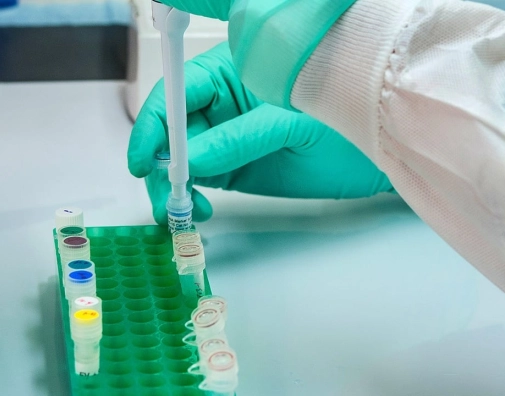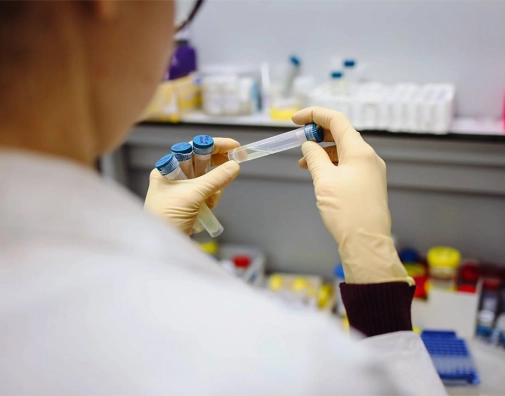
Understanding Pharmacogenomics

A Comprehensive Overview of Pharmacogenomics
Introduction
Pharmacogenomics, the study of how genes affect a person's response to drugs, combines pharmacology (the science of drugs) with genomics (the study of genes and their functions). This field is pioneering the development of effective, safe medications that are prescribed based on a person's genetic makeup. Conventional "one-size-fits-all" drug approaches don't work equally well for everyone, leading to inconsistent efficacy and adverse drug reactions, an important cause of hospitalization and death. Pharmacogenomics aims to alleviate these concerns by tailoring drug therapy to individual genetic profiles.
Genetic Influence on Drug Response
Each person's genetic composition is unique and has a profound impact on how they will respond to any given medication. Variants in genes encoding drug metabolizing enzymes, drug transporters, and drug targets can significantly affect drug efficacy and safety. These genetic differences can determine how well a medication works for an individual or whether they are likely to experience side effects. For example, clopidogrel resistance, warfarin sensitivity, and thiopurine S-methyltransferase deficiency are conditions in which genetic variants affect drug response.
Genetic Variants and Drug Metabolism
Genes like CYP2D6 and CYP2C19 encode enzymes that are crucial in drug metabolism. Variants in these genes can assign individuals to different metabolizer types: poor, intermediate, extensive (normal), or ultra-rapid.
- Poor metabolizers: These individuals have significantly reduced enzyme activity due to genetic variations, leading to potentially increased drug effects or toxicity because the body processes the medication more slowly than normal.
- Intermediate metabolizers: Individuals in this category have moderately reduced enzyme activity, which might cause variations in drug efficacy and the need for dosage adjustments to balance therapeutic effects and side effects.
- Extensive (normal) metabolizers: Representing the standard metabolic capacity, these individuals typically experience expected drug responses and side effects with standard dosages due to normal enzyme functioning.
- Ultra-rapid metabolizers: Characterized by increased enzyme activity, often due to multiple gene copies, these individuals metabolize certain drugs faster, possibly leading to reduced drug efficacy as the medication is cleared quickly from the body.
Pharmacogenetics vs. Pharmacogenomics
Although often used interchangeably, pharmacogenetics and pharmacogenomics are quite distinctive in their scope. Pharmacogenetics focuses on single gene-drug interactions and is limited to monogenic phenotypes. Pharmacogenomics, on the other hand, is broader in scope, addressing polygenic drug response phenotypes and integrating transcriptomics, proteomics, and metabolomics. Pharmacogenomics studies both pharmacokinetics (how the body processes a drug) and pharmacodynamics (how a drug affects the body).
Real-World Applications
The practical applications of pharmacogenomics are increasingly evident. For example, individualizing doses of antidepressants based on genetic testing can significantly improve treatment outcomes. This approach not only increases drug efficacy, but also reduces the risk of adverse drug reactions. Individualized medicine based on pharmacogenomic insights is becoming more widely used in treating several diseases, including cardiovascular disease, Alzheimer's disease, cancer and asthma.
Challenges and Future Directions
Despite its potential, the field faces challenges such as limited data for some populations, and not all drugs are significantly influenced by genetic factors. However, ongoing research and clinical trials are continually expanding our understanding of pharmacogenomics.
This evolving field promises to use genetic information to develop tailored drugs and optimize treatment strategies for a wide range of health problems. The goal is to achieve better treatment outcomes, greater efficacy, and reduced drug toxicities and adverse drug reactions.
Pharmacogenomics is transforming the landscape of medical treatment, offering a future where medication is not just based on symptoms but tailored to an individual's genetic blueprint.
This field's growth signifies a major shift towards more effective, safer healthcare, highlighting the critical role of genetics in medical decision-making. As research progresses, pharmacogenomics will continue to refine and revolutionize personalized medicine, making it an integral part of healthcare strategies.
Evolving Nature of Genetic Research
Pharmacogenomics is a dynamic and rapidly evolving field. As ongoing research continually uncovers new genetic markers and sheds light on their implications, the recommendations based on current knowledge are subject to change.
Pharmacogenomics Test

This test examines how your genes may influence your response to medication. The analysis of your DNA looks at genetic variations that may influence how your body metabolizes and responds to various types of medication.
Adnà's Input
ADNÀ is committed to staying at the forefront of Genetic Solutions, specifically at-home genetic testing . This commitment underlines our dedication to providing high-quality, informed, and progressive genetic testing services. We actively seek out the latest innovations and research findings in pharmacogenomics to integrate them into our services.
Other Journal : Files
VIEW MORE


